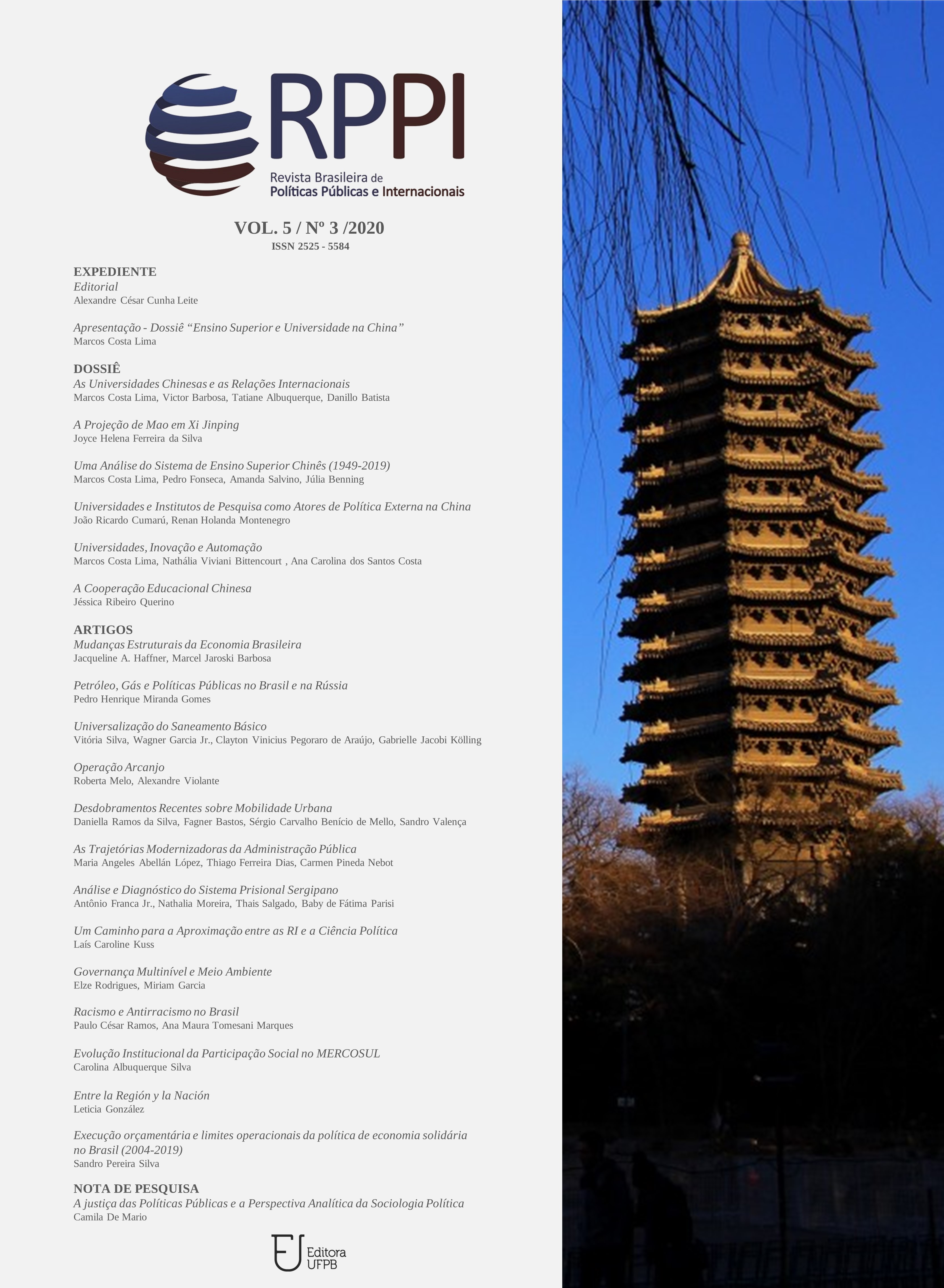Evolução Institucional da Participação Social no MERCOSUL
análise de uma experiência interrompida
DOI:
https://doi.org/10.22478/ufpb.2525-5584.2020v5n3.54047Palavras-chave:
MERCOSUL, Participação Social, Políticas SociaisResumo
Os anos 2000-2015 foram marcados pelo engajamento de governos e movimentos sociais nos processos de integração na América Latina, particularmente na América do Sul, o que resultou em iniciativas como ALBA, UNASUL E CELAC. Já o MERCOSUL teve sua agenda de negociações ampliada e buscou-se adicionar conteúdo social e político a seu caráter eminentemente comercial. Neste cenário, ganhou importância o debate sobre a atuação da sociedade civil nas relações internacionais e seu acesso aos processos de decisão das estratégias de inserção regional de seus países. Este artigo trata de situar, a partir das abordagens teóricas do regionalismo pós-liberal/anti-hegemônica e do novo transnacionalismo, como se desenvolveu esse debate no âmbito do MERCOSUL, a partir da análise da evolução institucional da participação social no bloco. Para tanto, além da leitura da bibliografia especializada, foi realizada pesquisa junto aos documentos oficiais do MERCOSUL referentes às iniciativas descritas. O artigo conclui que a valorização de políticas sociais e participativas se deveu à combinação de três fatores centrais: o esgotamento das políticas neoliberais hegemônicas nos anos 1980-1990; a ascensão de governos de esquerda e centro-esquerda e a emergência de novos atores sociais no cenário regional.
Downloads
Downloads
Publicado
Edição
Seção
Licença
Autores que publicam nesta revista concordam com os seguintes termos:- Autores mantém os direitos autorais e concedem à revista o direito de primeira publicação, com o trabalho simultaneamente licenciado sob a Licença Creative Commons Attribution que permite o compartilhamento do trabalho com reconhecimento da autoria e publicação inicial nesta revista.
- Autores têm autorização para assumir contratos adicionais separadamente, para distribuição não-exclusiva da versão do trabalho publicada nesta revista (ex.: publicar em repositório institucional ou como capítulo de livro), com reconhecimento de autoria e publicação inicial nesta revista.
- Autores têm permissão e são estimulados a publicar e distribuir seu trabalho online (ex.: em repositórios institucionais ou na sua página pessoal) a qualquer ponto antes ou durante o processo editorial, já que isso pode gerar alterações produtivas, bem como aumentar o impacto e a citação do trabalho publicado (Veja O Efeito do Acesso Livre).




_.jpg)






.png)


.jpg)
_.png)
